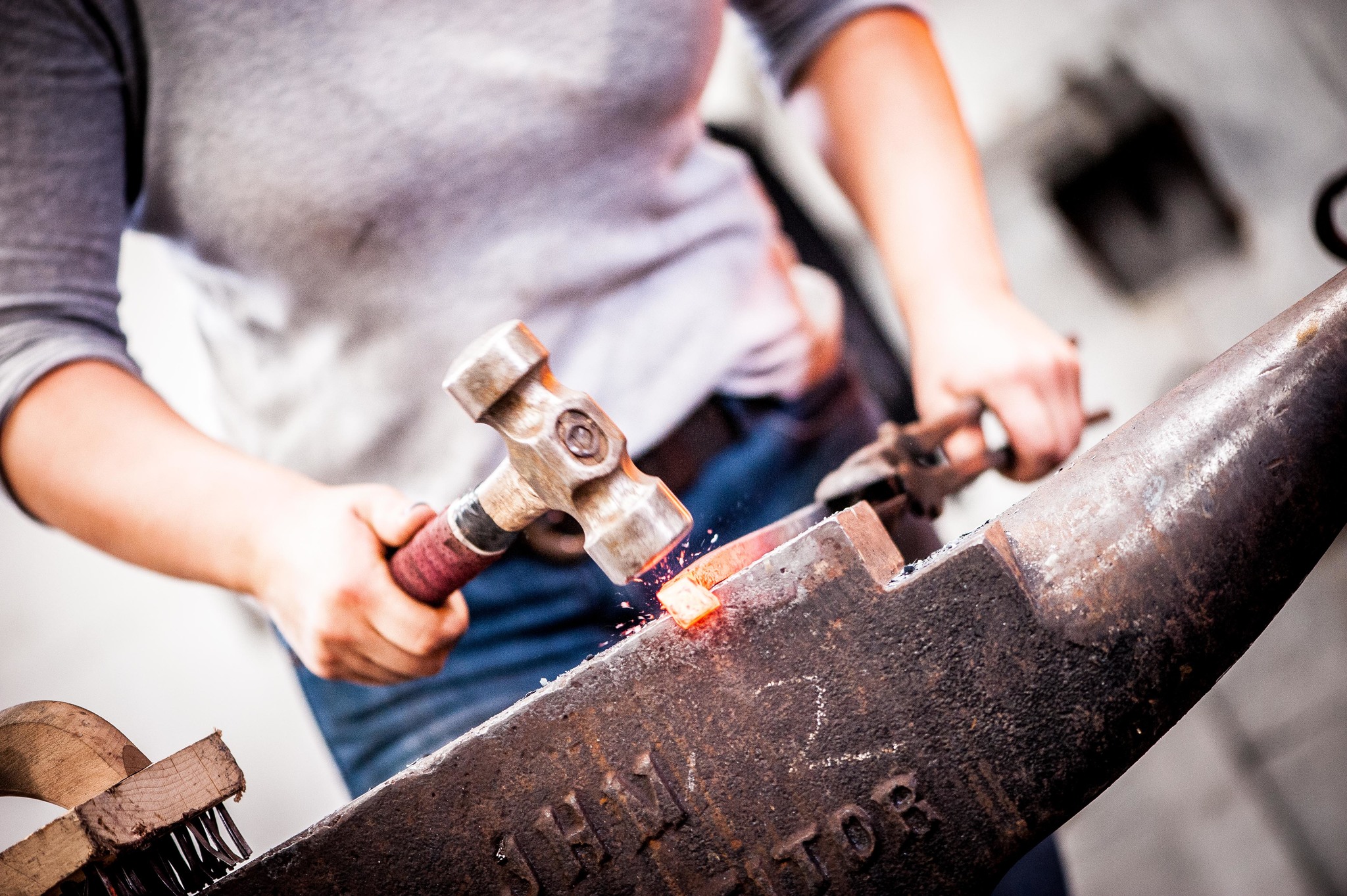Course modules
Diploma
Health and Safety in Blacksmithing
Metallurgy and Heat Treatment
Forging Processes
Welding and Thermal Cutting Processes
Freehand and Technical Drawing
Research, Design and Make Blacksmith Products
Forge Work Construction Techniques
Entry requirements & additional information
Entry requirements
2 GCSEs at Grade D (3) or equivalent, one must be English Language.
Please note: If you are looking to gain a farriery apprenticeship, you are required to have 5 GCSE’s at level 4 (grade C) or equivalent to include English Language, Maths and Science.
There is an opportunity to gain GCSE level 4 in Maths and English Language whilst completing this course.
Learning and assessment
Synoptic external assessment
There is one external unit that provides the main synoptic assessment for the qualification, which assesses a unit that contributes 25% of the total qualification guided learning hours. The synoptic assessment is designed to take place towards the end of the programme to ensure it draws on the learning throughout. The design of the assessment ensures that there is sufficient stretch and challenge, enabling the assessment of sector-related knowledge and technical and practical skills at the end of the learning period.
The synoptic external assessment for this qualification is based on Unit 9: Research, Design and Make Blacksmith Products and takes the form of a set task that allows learners to apply their skills and knowledge in context to a realistic work-based activity. Learners will respond to a design scenario to carry out research, in order to establish an initial design intention, before developing their ideas into a final outcome. In completing this task, learners will need to identify and use the varied practical skills and technical knowledge of the design process that they have developed during the programme.
The external assessment is taken under specified conditions, then marked by Pearson and a grade awarded. Learners must achieve the external unit at Pass grade or above to achieve the qualification. Learners are permitted to resit the external assessment once during their programme by taking a new assessment.
Internal assessment
Units 1, 2, 3, 4, 5, and 7 are assessed through internal assessment. Internal assessment allows learners to apply technical knowledge and demonstrate mastery of practical and technical skills through realistic tasks and activities. This style of assessment promotes deep learning through ensuring the connection between knowledge and practice.
Internal assessment is through assignments that are subject to external standards verification.
Progression
Achieving this qualification will give you an advantage when applying for a job in the blacksmithing sector.
When studied as part of a full study programme, this qualification will give you a sound basis to progress in the blacksmithing sector to a Level 3 qualification, such as the Pearson BTEC Level 3 National Diploma in Blacksmithing and Metalworking.
Careers
Blacksmith /possibly lead on to farriery apprenticeship.
Special requirements
Please note, some items may be available to buy in good condition second hand from car boot sales, Ebay etc.
Costs that are mandatory for the course: Total Cost Range £180 - £770
Steel toe capped boots
Safety glasses
Leather apron
Ear defenders
Leather gloves
Robust tool box
2-2.5lb hammer
Hollow bit tongs 16mm
Bolt tongs 10mm
Flat bit tongs 6mm
Centre punch
Steel/ brass ruler
8mm round stud punch
Stiff wire brush
Overalls
Drawing pad, inc pens
Engineers Chalk
Costs that are optional for the course: Total Cost Range £50 - £100
Callipers
Micrometre
Charcoal (drawing)
Graphite
Compass
Squares
Rulers
Curves
Flexible curves (ruled)
Stencil and circle templates
Pencil HB, 2H-4H


